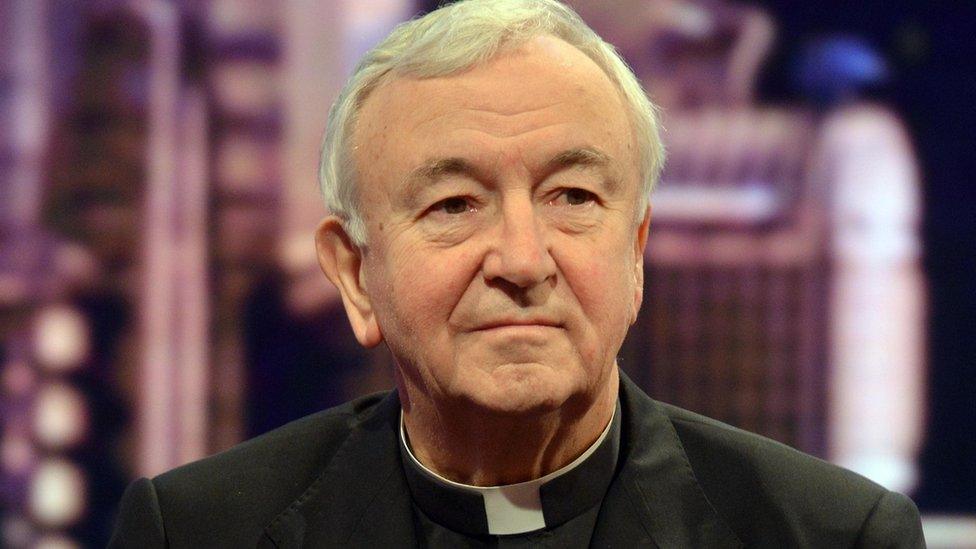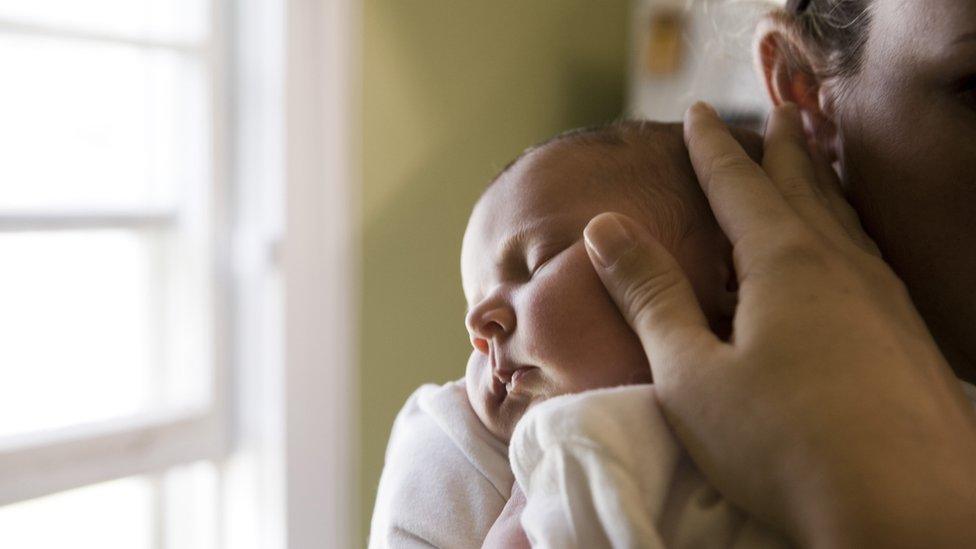Catholic archbishop apologises over adoptions
- Published

The Archbishop of Westminster has apologised for the "hurt caused" by adoption agencies acting in the name of the Catholic Church.
Cardinal Vincent Nichols told an ITV documentary the practices of those agencies "reflected the social values at that time, and were sometimes lacking in care and sensitivity".
Some mothers have said they were pressured into giving up their babies.
This was before councils took responsibility for adoptions from 1976.
More than half a million adoptions took place in the 30 years before the law change gave responsibility to local authorities in Britain.
Prior to this, many adoptions involved babies born to young unmarried mothers, often overseen by voluntary organisations with religious connections.
Lawyers calling for a public inquiry into the adoptions say it is important to the parents and children involved "to set the record straight".

Diana's story
In 1974, Diana was sent away from her home in London when, at 16, she became pregnant with her daughter.
"It was a very difficult time as the father had abandoned me," she told BBC Radio 5 live. "I pretended everything was OK and didn't tell anyone."

Diana (not pictured here) had 12 days with her daughter before she was taken away for adoption
When her mother found out about the pregnancy, Diana was sent away to a mother and baby unit outside the capital.
"I had not had any antenatal care so I really didn't know what to expect. It was both terrifying and heartbreaking."
In the 12 days Diana got to spend with her daughter, she was "actively discouraged" from helping care for her, whether it be picking her up, changing her or even feeding her.
"When I could, I fed her from a bottle as when I had been in hospital they gave me an injection to stop me lactating," she said. "It made the difference for me having those 12 days because I knew a little about her rather than nothing at all."
Diana then returned to London with her daughter before handing her over to the Church.
"That was the longest I had spent holding her, on that train journey back," she said. "When someone came out to take her, I was still in the mindset that they won't make me do this.
"But my mother took her from me, handed her to a stranger in a white coat and we went home."
Mother and daughter were reunited after the girl turned 18.
But Diana said: "You never get the time you have missed back. We have a good relationship, but there are still hundreds of thousands who don't have the joy of a relationship with their child."

'Systemic problem'
Speaking for the Roman Catholic Church in England and Wales, the cardinal said that the Church "understands and acknowledges the grief and pain caused by the giving up of a child through adoption".
His apology will be shown in an ITV documentary entitled Britain's Adoption Scandal: Breaking The Silence.
It features women who speak about their experience of having their babies adopted through the Catholic Church, the Church of England and the Salvation Army among other organisations.
The cardinal's comments come as lawyers prepare a case calling for the launch of a public inquiry.
Carolynn Gallwey, from Bhatt Murphy Solicitors, said: "It is about misinformation; women being told there was no financial support available, poor treatment in hospital, these common themes show up in so many cases that it points to a systemic problem.
"Saying it was the core values at the time to blame is not enough. People think these parents gave their children away and it is important to them, and the adopted children, to set the record straight."
The Home Office was the government department responsible for registering adoption agencies in the three decades after World War Two but the Department for Education now holds responsibility for the sector.
A government spokesman said: "We have a great deal of sympathy for those women and children who were affected by the pressures in the 1970s for unmarried mothers to give children up for adoption. Thankfully, this area was completely transformed by the Children Act 1989."